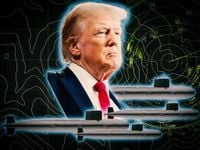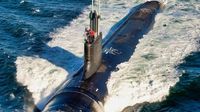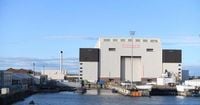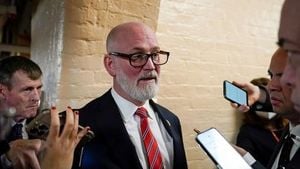Australia is grappling with a precarious future in light of its military alliance with the United States, particularly as uncertainty shrouds the AUKUS submarine deal amid Donald Trump’s return to the presidency. The AUKUS agreement, which was celebrated as a significant trilateral security partnership between Australia, the US, and the UK, now faces skepticism and worry from some Australians about the reliability of the United States as their ally.
Originally announced on September 15, 2021, the AUKUS deal promised to provide Australia with access to cutting-edge nuclear submarine technology. The projected cost of this monumental agreement stands at $368 billion, and has become a cornerstone for Australia’s military enhancements. Central to this deal is the future delivery of Virginia-class submarines, yet there is increasing doubt regarding when these submarines will actually arrive on Australian shores, especially with Trump now in the White House.
In a recent discussion conducted by the ABC’s Your Say project, many Australians voiced their apprehensions. Public sentiment was highlighted with comments like, “Can Australia still trust the United States as an ally?” and a revealing opinion from an Australian citizen who remarked, “Get out of AUKUS and look to protect ourselves because there is no way the USA will go to war to protect Australia.” Questions regarding whether such a substantial investment is wise when accompanied by a perceived risk of unreliability have left some calling for a reevaluation of the deal.
Under the current AUKUS framework, the first submarine is expected to arrive in 2032, while the construction of additional submarines is scheduled to commence in Adelaide based on future British designs. Yet there are worries about the United States’ capacity to deliver on these promises, with some Australian citizens noting the ongoing issues within US Navy submarine production. Specifically, Australian critics point to the risks that the submarines might never arrive, leading to concerns about Australia becoming too reliant on the whims of another nation.
While government officials like Prime Minister Anthony Albanese have expressed continued confidence in the AUKUS deal, remarks made by Trump during a press conference blatantly questioned his awareness of AUKUS. “What does that mean?” he replied when asked if he would discuss the agreement with UK Prime Minister Keir Starmer. This static led many Australians to doubt the commitment of their primary ally to their security arrangements.
In the midst of these uncertainties, Deputy Prime Minister Richard Marles has insisted that the alliance remains robust, stating, “In word and deed, in all that has been said and all that has been done and indeed underpinned by a legal treaty, AUKUS is there.” Yet even he admits the challenges within the US regarding an increase in submarine production rates pose significant hurdles for Australia in securing its maritime defense capabilities.
Critics of the AUKUS deal, including former Prime Minister Malcolm Turnbull, have been vocal about the potential pitfalls. He expressed deep concerns: “We are paying US$3 billion to the Americans to support their submarine industrial base, but we have no guarantee that we will ever get any submarines.” These sentiments resonate with other citizens who fear that Australia’s commitment might be a one-way street, wherein the U.S. prioritizes its own needs over its allies’ defense requirements.
Public hearings also produced voices of warning. Doug Cameron, national patron of the Labor Against War faction, suggested, “If this, if we were a business, there is no way we would invest in such an unstable, unreliable supplier.” His comments highlight a growing discord within Australia about the ramifications of depending on the United States.
As uncertainties loom, the Australian government operates under the assumption that AUKUS is fundamentally sound, working to bolster its domestic defense industry and enhance partnerships across Europe and the Indo-Pacific. There’s a hope for Australia to move towards a self-reliant military stance to counterbalance such vulnerabilities.
In the face of shifting geopolitical currents, Australia is finding itself at a crossroads. If the demand from the U.S. military takes precedence, not only might they find the submarines promised under AUKUS delayed, but they could also face a concerning reality where funding commitments to local capabilities falter. This is not a scenario Australia can afford to overlook.
Indeed, the situation encapsulates the essence of the AUKUS deal: it is both a pathway to greater defense capabilities and a vulnerable gamble on the historical promises made by a superpower. If the U.S. recalls these promises—especially now under the strident “America First” ethos—Australia will find itself vulnerable, much like it did prior to the AUKUS announcement.
The reality of international alliances has emerged starkly: nations must ultimately look out for their own capabilities to ensure their security. Whether under the tumultuous leadership of Trump or any subsequent administration, the lessons gained by Australia from the AUKUS submarine saga remain applicable across its landscape: the remnants of geopolitical commitments can dissolve swiftly, and nations need to adapt or risk becoming unprepared and stranded.









